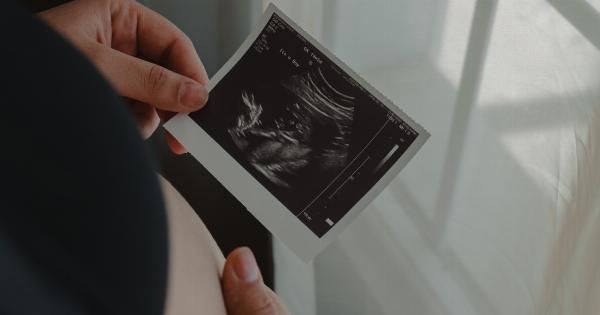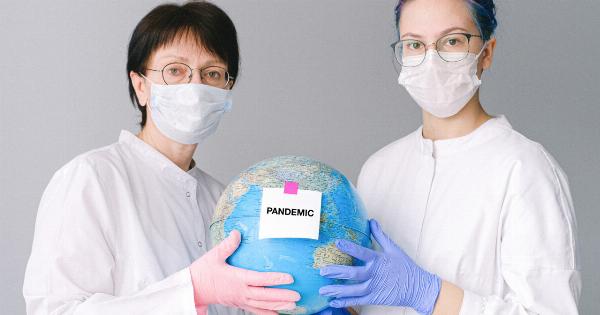Breastfeeding is the most natural and recommended method of feeding a newborn baby. It offers numerous benefits to both mother and child. However, as a mother, you may wonder if you can pass on your virus to your baby while breastfeeding.
In this article, we will explore the topic in-depth and provide you with answers.
Can viruses be passed through breast milk?
Yes, viruses can be passed through breast milk. A nursing mother can share viruses that cause illnesses like cold, flu, and many others.
However, the good news is that most viruses that are typically passed on to babies via breastfeeding are unlikely to cause serious health problems.
What viruses can be passed to babies through breastfeeding?
The viruses that can be passed to babies through breastfeeding include:.
- Coronavirus
- Human Immunodeficiency Virus (HIV)
- Cytomegalovirus (CMV)
- Hepatitis B Virus (HBV)
- Zika Virus
- Herpes Simplex Virus (HSV)
- Varicella-Zoster Virus (VZV)
- Influenza Virus
How can breastfeeding transmit viruses to babies?
When an infected mother breastfeeds her baby, the viruses can pass into the breast milk and subsequently into the baby’s body.
These viruses are typically present in high concentrations in the mother’s bloodstream, and some may also be present in her saliva or respiratory secretions. The baby can become infected by ingesting particles containing the virus that are present in the breast milk.
Can a mother breastfeed if she has a virus?
Most of the viruses that can be passed through breast milk are unlikely to cause serious harm to the baby. However, it is essential to take specific precautions if the mother has some viruses like HIV, Zika Virus, or CMV.
Mothers with HIV should not breastfeed their babies as HIV can be transmitted through breast milk.
However, in some cases where the mother has access to antiretroviral therapy, and at the same time, there are no affordable, safe, and sustainable alternatives available, breastfeeding with precautions can be done for the first six months of the baby’s life.
For mothers with CMV, they can still breastfeed their babies. But preventive measures such as frequent washing of hands, cleaning and disinfecting toys, and avoiding contact with the baby’s saliva or bodily fluids should be observed.
Also, expressing the breast milk and pasteurization before feeding can be done to inactivate the virus in the breast milk.
For mothers with Zika Virus, they are advised not to breastfeed their babies as Zika Virus can be transmitted through breast milk.
If a mother with Zika Virus needs to breastfeed, it is advisable to express her breast milk while observing strict sterilization techniques.
What can a mother do to prevent viral infections while breastfeeding?
Here are some measures a mother can take to prevent viral infections while breastfeeding:.
- Wash your hands regularly with soap and water before and after breastfeeding or expressing milk.
- Avoid sharing personal items such as towels, cups, and utensils, which can lead to the spread of the virus.
- If you get sick, wear a mask when breastfeeding or expressing milk to prevent the spread of the infection.
- Practice good nutrition and hydration.
- Get vaccinated for the flu or any other relevant vaccination.
What if the mother or baby gets sick?
If you or your baby gets sick, do not stop breastfeeding. Instead, continue breastfeeding while taking the appropriate precautions to prevent the spread of the virus from one person to another.
The antibodies you pass to the baby through breast milk are essential in boosting their immune system, and therefore it’s crucial to continue breastfeeding.
When should a mother avoid breastfeeding?
Mothers should avoid breastfeeding in the following cases:.
- If the mother has active tuberculosis or is receiving treatment for it.
- If the mother has human T-cell leukemia virus type 1 or 2 (HTLV-1 or HTLV-2).
- If the mother is undergoing chemotherapy, which can pass into the breast milk and harm the baby.
- If the mother has a severe infection and requires intravenous antibiotics.
- If the mother is taking certain medications that should not be passed to the baby through breast milk.
Conclusion
Breastfeeding is beneficial to both the mother and baby and should be encouraged. Most viruses that are typically passed on to babies via breastfeeding are unlikely to cause serious health problems.
However, when a mother has specific viruses like HIV, Zika Virus, or CMV, precautions must be taken to avoid transmitting the virus to the baby. It is also essential to take preventative measures to avoid getting viral infections while breastfeeding.































